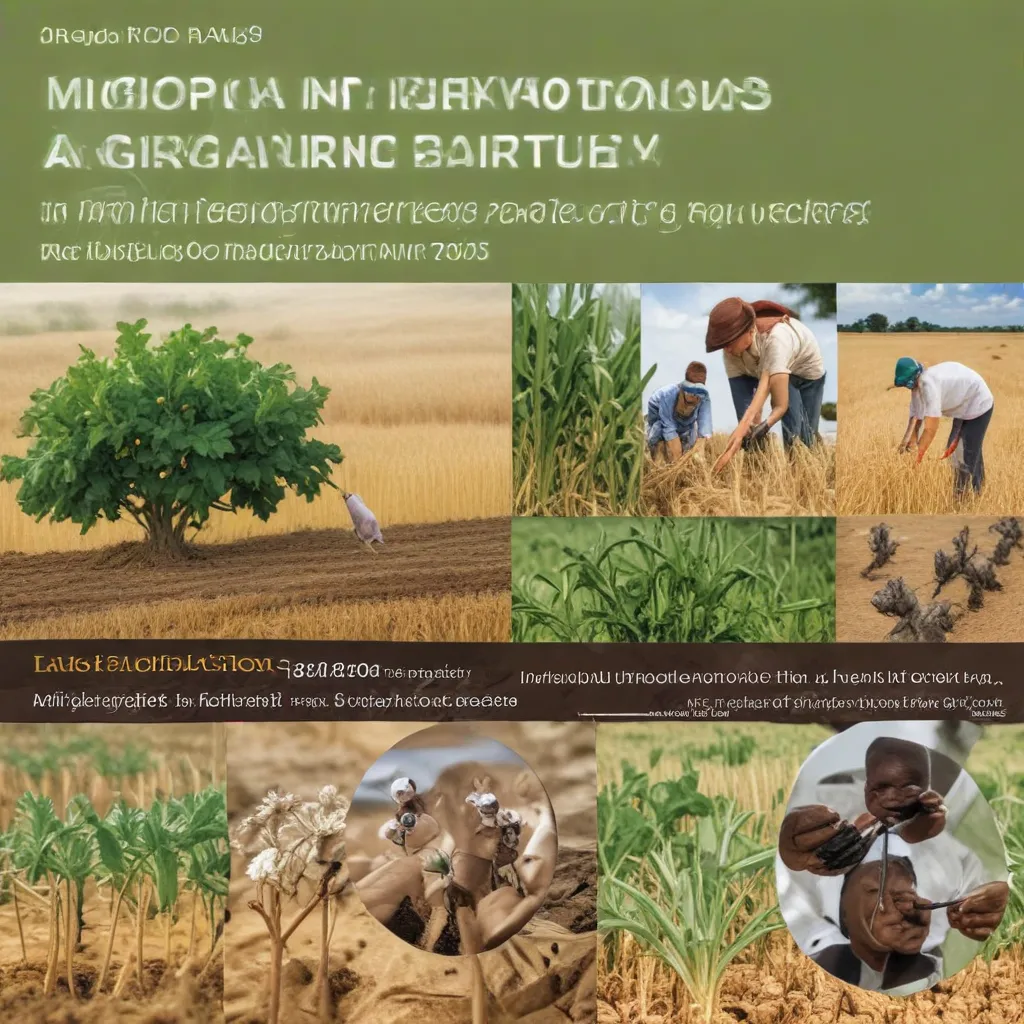
Ensuring food security and promoting sustainability are critical global challenges that require innovative solutions. The field of microbiology offers promising answers by harnessing the immense diversity and capabilities of microorganisms. These microscopic life forms play vital roles throughout the food production cycle, from enhancing soil fertility and boosting plant growth to controlling pests and diseases, facilitating food processing, and managing waste.
Exploiting beneficial microbes can increase crop yields, improve nutrient bioavailability, and reduce reliance on synthetic agrochemicals, contributing to environmental sustainability. Moreover, microbial biotechnologies enable the development of innovative food products, enhance food safety measures, and prolong shelf life, minimizing food waste. Significantly, microbial-based solutions can be tailored to local contexts, fostering inclusive and equitable food systems accessible to diverse communities.
However, fully realizing the potential of microbiology in food systems requires a multidisciplinary approach, integrating advancements in microbial ecology, genomics, metabolomics, bio preservation, and biotechnology. This article explores the remarkable potential of microbiology to contribute to food security and sustainability, emphasizing the importance of interdisciplinary research and the integration of microbiological innovations into agricultural practices and food systems.
Soil Microbiome: Foundations for Sustainable Agriculture
The soil microbiome, a complex and dynamic community of microorganisms, is the foundation for sustainable agriculture. Beneficial bacteria, fungi, and archaea play crucial roles in maintaining soil health, nutrient cycling, and plant growth.
Beneficial Microorganisms: Exploiting the immense diversity of soil microbes can unlock their potential to enhance agricultural productivity. Certain bacteria and fungi form symbiotic relationships with plant roots, improving nutrient and water uptake, while others produce plant growth-promoting compounds, bolstering crop yields. Integrating these beneficial microbes into farming practices through biofertilizers and biopesticides can reduce the reliance on synthetic agrochemicals, fostering more sustainable and environmentally friendly food production.
Soil Nutrient Cycling: Microorganisms are the primary drivers of soil nutrient transformations, converting organic matter into plant-available forms of nitrogen, phosphorus, and other essential elements. By understanding the intricate interplay between soil microbes and nutrient dynamics, researchers can develop strategies to optimize nutrient use efficiency, minimizing waste and environmental impact.
Soil Health Maintenance: Healthy soils teeming with diverse microbial communities are more resilient to environmental stresses, such as drought, pests, and diseases. Practices like minimal tillage, cover cropping, and organic farming can nurture beneficial soil microbes, enhancing overall soil fertility and structure, ultimately supporting the long-term sustainability of agroecosystems.
Microbial Contributions to Crop Productivity
Harnessing the power of microorganisms can significantly boost crop productivity and resilience, addressing the pressing challenge of food security.
Plant-Microbe Interactions: Beneficial microbes can form intricate symbiotic relationships with plant roots, facilitating the uptake of nutrients, enhancing drought tolerance, and even protecting against pathogens. Understanding these complex interactions allows for the development of innovative biofertilizers and biopesticides that leverage the synergistic potential of microbes and plants.
Biofertilizers and Biopesticides: Microbial-based biofertilizers and biopesticides offer eco-friendly alternatives to synthetic agrochemicals, reducing the environmental footprint of agriculture. These microbial products can improve nutrient availability, promote plant growth, and suppress pests and diseases, contributing to sustainable intensification of crop production.
Stress Tolerance Mechanisms: Certain microbes possess remarkable abilities to help plants withstand environmental stresses, such as drought, extreme temperatures, and saline conditions. By elucidating the underlying mechanisms, researchers can engineer microbes to enhance the stress tolerance of crops, ensuring food production in the face of a changing climate.
Sustainable Farming Practices Powered by Microbes
Integrating microbiological innovations into agricultural practices can unlock new frontiers of sustainability, fostering resilient and productive food systems.
Integrated Pest Management: Microbes can play a pivotal role in integrated pest management strategies, providing natural alternatives to synthetic pesticides. Beneficial microorganisms can act as biopesticides, competing with or antagonizing harmful pests and pathogens, thereby reducing the need for chemical interventions.
Agroecosystem Resilience: Diverse and thriving soil microbial communities contribute to the overall resilience of agroecosystems, enhancing their ability to withstand environmental stresses and maintain productivity. Practices like minimal tillage, cover cropping, and organic farming can nurture these beneficial microbes, leading to more resilient and sustainable food production.
Organic and Regenerative Agriculture: The principles of organic and regenerative agriculture align closely with the microbial-centric approach, emphasizing the importance of soil health and ecosystem balance. By harnessing the power of microorganisms, these farming methods can reduce reliance on synthetic inputs, sequester carbon in the soil, and promote biodiversity, contributing to long-term environmental sustainability.
Interdisciplinary Research Approaches: Unlocking the Potential of Microbiology
Fully realizing the potential of microbiology in food systems requires a multidisciplinary approach, integrating advancements across various scientific disciplines.
Omics Technologies: Cutting-edge omics techniques, such as genomics, metagenomics, transcriptomics, and metabolomics, have revolutionized our understanding of microbial diversity, function, and interactions within complex food production ecosystems. These powerful analytical tools enable the identification and characterization of key microbial players, paving the way for targeted interventions and optimized management strategies.
Computational Modeling: Advances in computational modeling and data analytics allow researchers to simulate and predict the behavior of microbial communities under various environmental conditions and management practices. These predictive models can guide the development of tailored solutions, ensuring the effective integration of microbial-based technologies into real-world agricultural systems.
Translational Research: Bridging the gap between fundamental research and practical application is crucial for the successful integration of microbial innovations in agriculture. Translational research efforts, involving close collaboration between scientists, farmers, and industry partners, can facilitate the seamless transfer of microbial-based technologies from the laboratory to the field, addressing the unique challenges and needs of local farming communities.
By embracing an interdisciplinary approach, the field of microbiology can unlock transformative solutions to enhance food security and promote sustainable agriculture, benefiting both producers and consumers alike. The integration of microbiological innovations into agricultural practices holds immense promise for creating a more resilient, equitable, and environmentally-conscious food system for the future.
